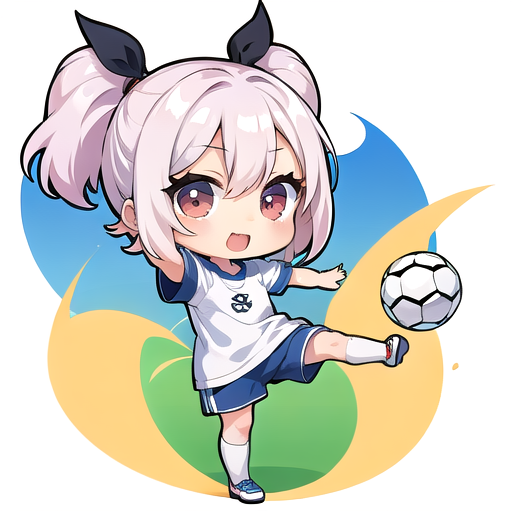今日のニュースも
初任給引き上げ、30万円台続々 人材獲得競争が激化 大手企業
業界を問わず人手不足が深刻化する中、優秀な若手を確保するのが狙いだ。大卒で月30万円台に乗せる企業も相次いでおり、人材獲得競争が一段と激しさを増してきた。
この国は、なんとなく社会主義国家を目指しているのか金でしか物事を判断できない人間を量産しようとしているのだろうか。
ちなみに私は就職氷河期世代です。
就職氷河期とは、日本における経済的な停滞と、それに伴う企業の採用意欲の低下により、若者が十分な就職の機会を得られなかった時代を指します。この期間は、特に1990年代半ばから2000年代初頭にかけて顕著であり、バブル経済崩壊後の「失われた10年」と呼ばれる長期的な経済不況が大きな背景となっています。日本社会全体が経済成長の停滞に直面する中、多くの企業は経営の効率化を優先し、正社員の採用を大幅に絞り込んだため、新卒者たちは激しい競争を強いられることになりました。
この時期の若者たちは、非正規雇用や短期的な雇用契約に依存せざるを得ない状況が続き、安定した収入や社会的保障を得ることが難しい状態に追い込まれました。その結果、社会的な地位や収入の格差が固定化しやすくなり、結婚や出産、住宅購入といったライフイベントの選択にも制約がかかりました。このような状況は個人の生活やキャリアだけでなく、日本全体の社会構造や経済成長にも影響を与えました。
さらに、この時期の特徴は、就職活動の失敗が単なる一時的な挫折にとどまらず、その後の長期的なキャリア形成や収入の見通しにも深刻な影響を及ぼした点にあります。特に「新卒一括採用」を中心とする日本独特の雇用慣行の中では、一度正社員としての就職に失敗すると、後に正規雇用の道を再び目指すことが非常に難しくなるという問題がありました。これにより、就職氷河期世代の多くが「非正規雇用のまま年齢を重ねる」「キャリアアップが困難になる」といった課題に直面し、現代に至るまでその影響が続いているとされています。
就職活動時代はアナログで、履歴書も手書きだし、分厚いリクルート情報誌を見てあれこれ募集したのがいい思い出。でも結局は父親のコネを使って芸能関係に行きたかったこともあっていろいろ動いたものの、広告代理店に入りました。広末涼子に会えると思い(結局はdocomo用のパンフ作ったりしていただけでしたが)。
今のバカ高い初任給戦争を見ていると、うちの子供もいい給料をと思ってしまいがちですが、結果が出ないとすぐ首になりそうなので、地頭をしっかりつけないとメンタルやられてしまうのではと心配してしまいます。
仕事をしたいのか、お金を稼ぎたいのか。それで仕事を選ぶのはどうなんでしょう?入社して見なければ本当にやりたい仕事かもわからないのに。広告作れると思って入社したのに不動産のチラシ作りに回されて、国会図書館とか言ってゼンリンの地図をコピーして張り合わせて現地調査に行き、マンションの売りを考えるといった広告屋でなく不動産屋のようなことをやらされたのが1年半で最初の会社を辞めた原因でもあったので、会社なんて自分のやりたいことをやろうと思ったら自分でやるのが一番です。
Is Japan aiming to become a socialist state, or is it trying to mass-produce people who can only judge things by money?
Today’s news on starting salaries shows an ongoing trend of companies raising them to over 300,000 yen per month for new graduates. This is part of the fierce competition to attract talented young workers amid severe labor shortages across various industries.
By the way, I am part of the so-called “Employment Ice Age Generation.”
The Employment Ice Age refers to a period in Japan marked by economic stagnation and a significant drop in corporate hiring, leaving young people with very limited job opportunities. This period was particularly pronounced from the mid-1990s to the early 2000s, during what is often called the “Lost Decade,” following the burst of Japan’s economic bubble. With stagnating economic growth, companies prioritized cost-cutting and drastically reduced their hiring of full-time employees. As a result, new graduates faced intense competition.
During this time, many young people were forced into non-regular employment or short-term contracts, making it difficult for them to achieve financial stability or access social security benefits. Consequently, disparities in income and social standing became entrenched, and life choices like marriage, parenthood, and home ownership were significantly constrained. These challenges extended beyond individual lives, impacting the overall structure of Japanese society and its economic development.
A particularly harsh aspect of this era was how a single failure in job hunting could have lasting consequences on one’s career prospects and income potential. Japan’s unique system of “mass recruitment of new graduates” meant that missing the opportunity to secure a regular job upon graduation made it extremely difficult to re-enter the full-time workforce later. For many in the Ice Age Generation, this resulted in long-term struggles with job instability and limited opportunities for career advancement, challenges that persist even today.
Back then, job hunting was analog: resumes were handwritten, and we relied on thick recruitment magazines to explore job listings. It’s a fond memory of a time when I looked at various options. Ultimately, though, I used my father’s connections to explore a career in the entertainment industry, as I dreamed of working in that field. Despite my efforts, I ended up at an advertising agency instead. I thought I might get to meet Ryoko Hirosue (though I only ended up working on DoCoMo pamphlets).
Looking at today’s skyrocketing starting salaries, I can’t help but hope my kids will land well-paying jobs. However, I also worry that such high expectations might lead to quick dismissals if results aren’t delivered. It seems critical to nurture sound reasoning and resilience in children so they don’t crumble under pressure.
The question remains: do people want to work, or do they just want to earn money? Choosing a job based solely on salary feels risky, especially since you won’t know if it’s something you truly want to do until you’ve tried it. When I joined an advertising agency, I thought I’d be creating advertisements, only to be assigned to make real estate flyers. I spent my days at the National Diet Library copying Zenrin maps, stitching them together, and conducting on-site surveys to come up with ideas for selling apartments. It felt more like being a real estate agent than an advertiser. That experience led me to quit my first job after 18 months.
In the end, if you truly want to do something, the best way is to do it on your own.
株式会社ASAP
及川知也

